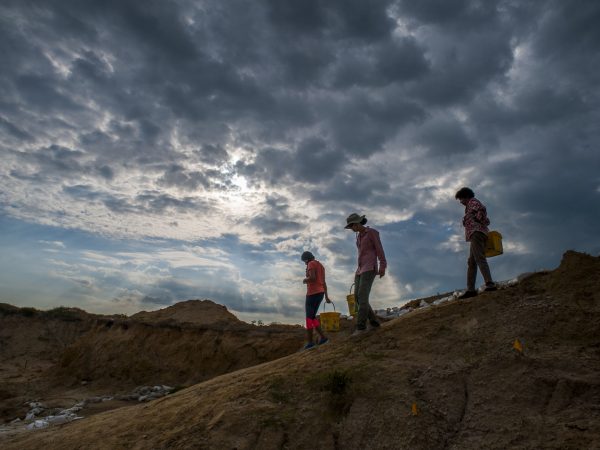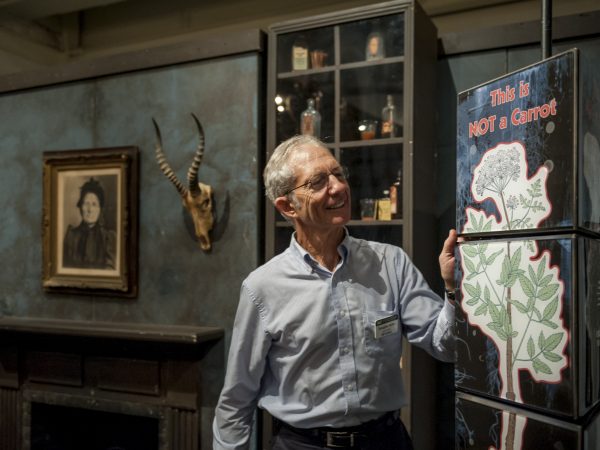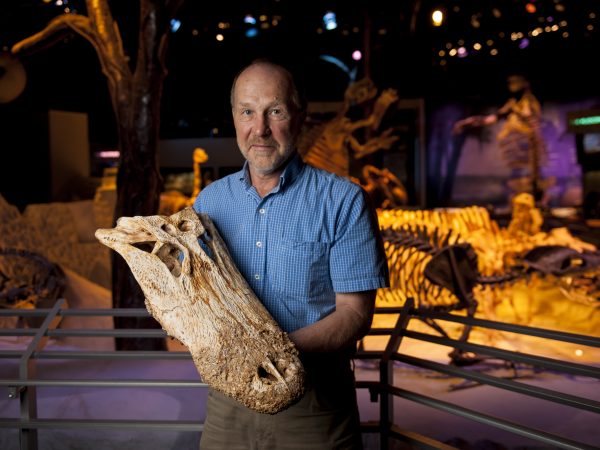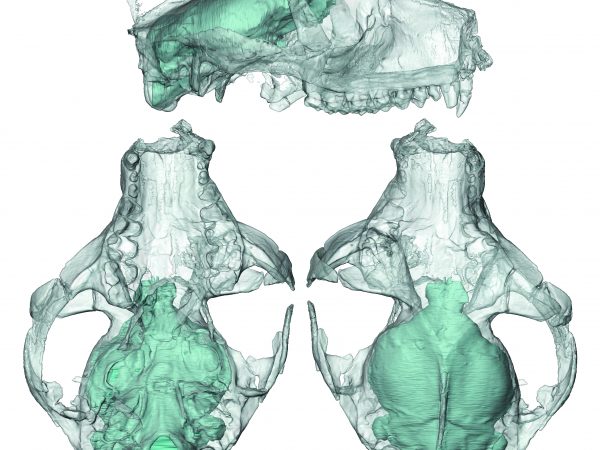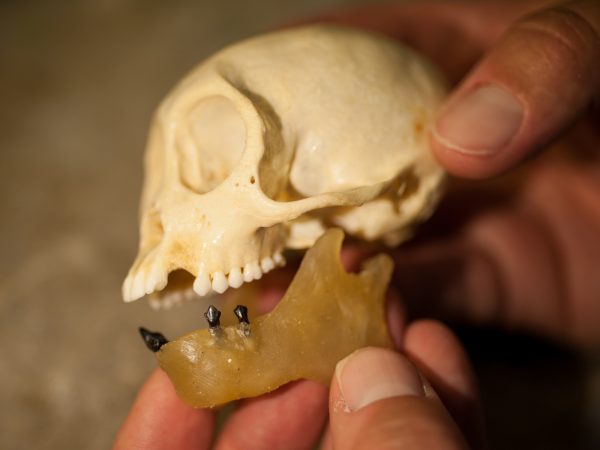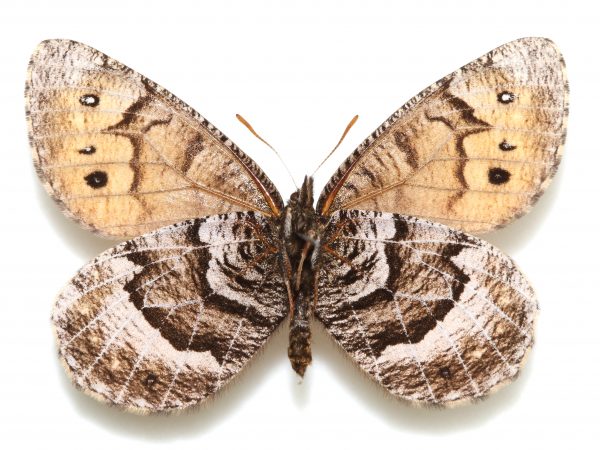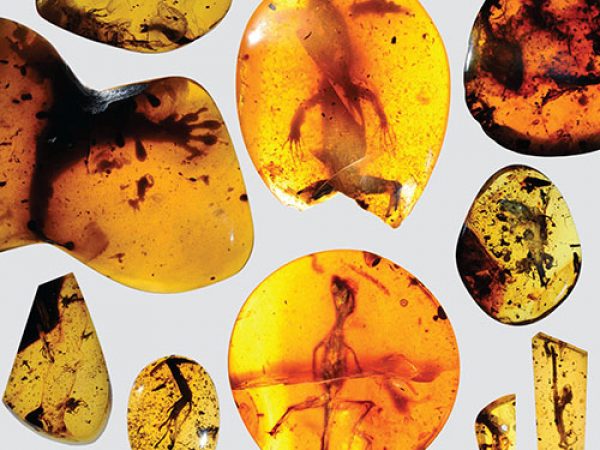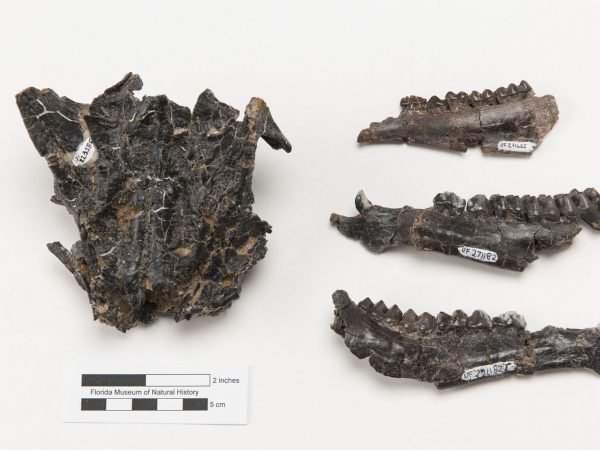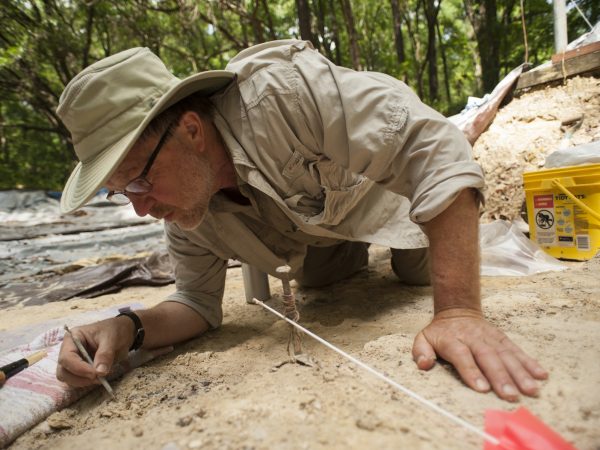Searching for red pandas in an elephant graveyard
Elephant-like tusks. A toe bone of an ancient condor. Even a snapping turtle with a smaller turtle coming out of…
Read More
On the defense
Harmful plants have evolved to protect themselves from predators It’s one of society’s hotly debated questions: ketchup or mustard? For…
Read More
A reptilian anachronism
New study also shows American alligator shared ancient Florida with giant crocodiles From climate to the peninsula’s very shape, not…
Read More
How did primate brains get so big?
Virtual brains reconstructed from ancient, kiwi-sized primate skulls could help resolve one of the most intriguing evolutionary mysteries: how modern…
Read More
George Washington’s little buttercup
Two men set out on the Potomac River in 1892 looking for fossil plants from the days when dinosaurs roamed…
Read More
Paleontologists find first fossil monkey in North America – but how did it get here?
Seven tiny teeth tell the story of an ancient monkey that made a 100-mile ocean crossing between North and South…
Read More
Is Alaska’s first new butterfly species in decades an ancient hybrid?
Some might say it takes a rare breed to survive the Alaska wilderness. The discovery of a possible new species…
Read More
World’s oldest chameleon
Editor’s note: New fossil discoveries show this specimen is an amphibian known as an albanerpetontid, not a chameleon. Even though…
Read More
Extinct deer-like creature sheds light on biodiversity
The expansion of the Panama Canal, a century-old waterway connecting the Atlantic and Pacific, began with a massive explosion bursting…
Read More
Thomas Farm: a prehistoric treasure
Places like the Hell Creek Formation in Montana and the La Brea Tar Pits in Los Angeles echo famous prehistoric…
Read More
